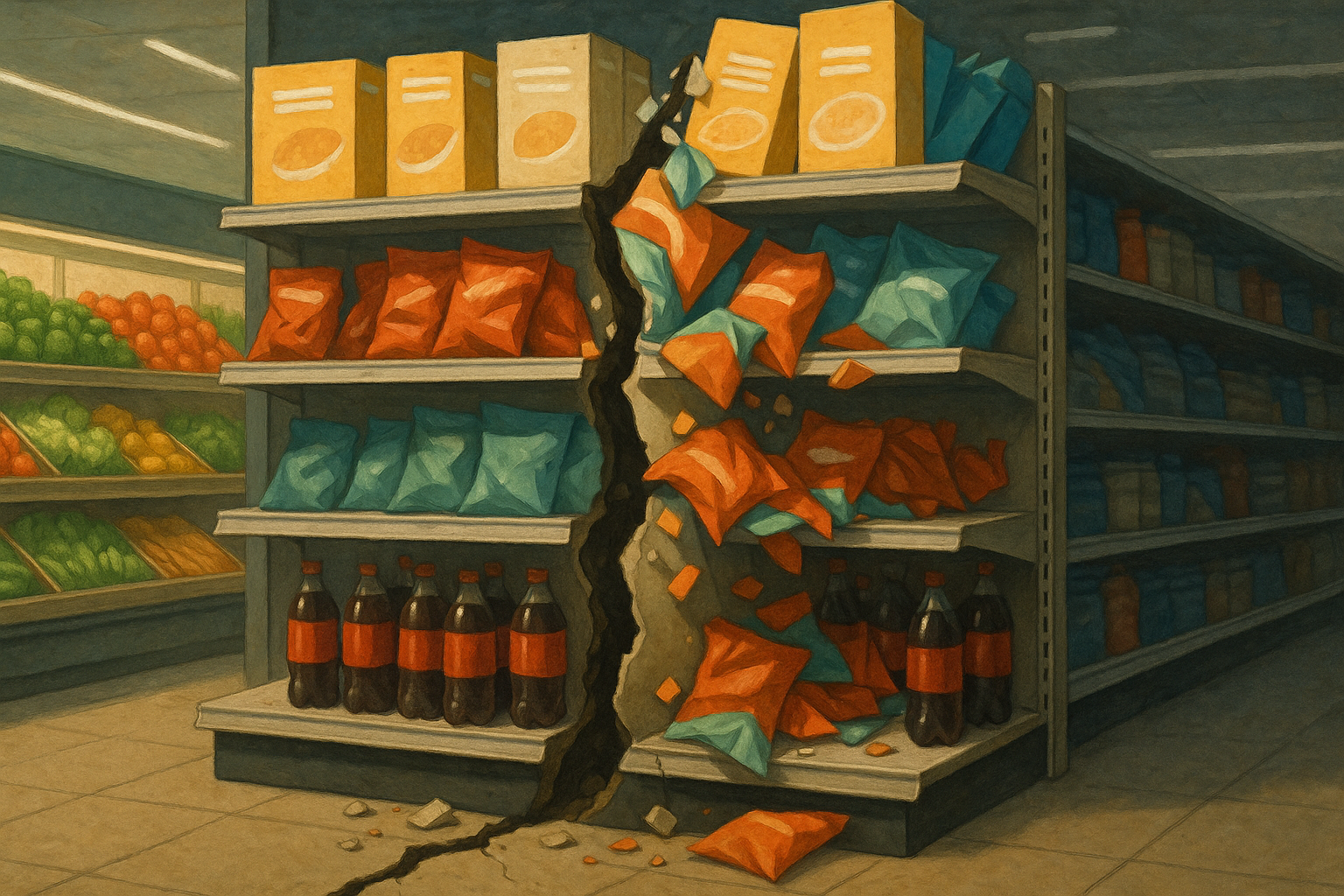The dismantling business is booming in the grocery aisle these days. Everywhere you look, America's food giants seem to be eyeing the exit signs on their marriages of corporate convenience.
Kraft Heinz—that behemoth born of 3G Capital's grand vision just eight years ago—is now mulling a split into two separate companies. PepsiCo finds itself fending off Elliott Management, which is practically demanding a corporate divorce. And Kellogg's? They've already jumped ship, fragmenting into three distinct companies last year.
So what gives? Are we witnessing the death throes of Big Food, or is this actually... smart?
I've been covering the consumer goods sector for years, and I'll tell you this—when an entire industry starts breaking itself apart simultaneously, it's not just coincidence. It's seismic.
The corporate breakup playbook has become almost tediously familiar on Wall Street. Company grows massive through acquisitions. Company discovers that massive doesn't equal nimble. Company then splits apart to "unlock shareholder value"—that favorite phrase of corporate communications departments everywhere, ranking just behind "synergies" in the euphemism hall of fame.
But the timing here is what fascinates me.
These splits aren't happening in a vacuum. They're direct responses to a fundamental shift that's been brewing for years—consumers have been steadily abandoning the middle aisles of supermarkets (you know, where all the packaged, processed stuff lives) in favor of fresh options around the perimeter.
Look at the numbers. They're brutal. Kraft Heinz admits they'll lose roughly $300 million in what they're calling "dis-synergies" from their potential split. That's corporate-speak for "this is gonna cost us a fortune in duplicated overhead." Meanwhile, Elliott is promising PepsiCo could see a 50% upside from breaking up its snack and beverage businesses.
(I should note that activist investors have a long, checkered history of promising upsides that sometimes materialize about as reliably as my nephew's promises to clean his room.)
Traditional finance theory tells us conglomerates should trade at a discount because investors prefer pure-play companies they can understand and value more easily. The "conglomerate discount" is real—just ask any poor soul who held GE stock through its decade-long dismantling.
But here's the thing that makes these food breakups different. These aren't random collections of unrelated businesses like the conglomerates of old. They're mostly selling variations of the same stuff: processed food designed for convenience.
So what's really driving this corporate mitosis?
I see three possibilities.
First, it could be genuine strategic repositioning. By creating more focused entities, maybe these companies can better respond to changing consumer tastes. One unit doubles down on traditional processed foods while another chases healthier alternatives.
Second—and let's be honest here—it could be financial engineering masquerading as strategy. Breaking companies apart creates transaction fees, new executive compensation packages, and that short-term stock bump that makes activist investors do their happy dance, even if the long-term value remains... questionable.
Third, and most intriguing, it could be a tacit admission that Big Food as we've known it is in terminal decline. Perhaps these corporate giants have finally recognized that consumer preferences have shifted permanently, and breaking up is their best attempt to manage a gradual retreat from categories that simply won't return to growth.
The Kraft Heinz situation is particularly telling. This was the company that was supposed to revolutionize the food industry when 3G Capital and Berkshire Hathaway created it in 2015. Instead, after slashing costs so aggressively they could barely innovate their way out of a paper bag, they've watched their iconic brands slowly lose relevance to consumers.
Will a split solve the fundamental problem? People just don't eat like they used to.
For PepsiCo, the math looks different. Their snack business (Frito-Lay) has actually been outperforming beverages. Elliott's argument isn't about declining categories but about letting each business optimize independently—a more classic conglomerate breakup story.
Having tracked this industry through multiple cycles, I can say with confidence that the era of the ever-expanding food conglomerate is done. Finito. Kaput.
The real question investors should be asking isn't whether these breakups will juice stock prices in the short term. It's whether any corporate structure—merged, split, or otherwise—can reverse the fundamental changes in how Americans eat.
And that, my friends, is real food for thought.
